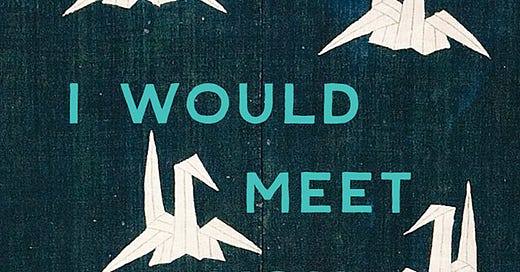It is a truth universally acknowledged that all happy families are alike; each family formed by adoption is unhappy in its own way." [Apologies to Jane Austen and Leo Tolstoy for the mashup of opening lines from Pride & Prejudice and Anna Karenina.]
Susan Kiyo Ito’s memoir of her on-again, off-again relationship with her blood mother is a marvel of pacing. Scenes crucial to the narrative are slowed down to the moment-by-moment level of specific gestures, dialogue, interior thoughts, and exterior observations. This strategy allows readers to fully inhabit Susan’s real-time experiences of searching, finding, and accommodating Yumi, the woman who gave birth to her.
Susan’s adoptive parents supported her search for and subsequent relationship with Yumi, and tried to bring everyone in the adoption triad together. What was intended as loving and supportive ironically intensifies questions of family loyalty. During early meetings with Yumi, when Susan is in thrall to the very idea of being near to her own flesh blood, it’s as if she wants their relationship to be private. In aching, honest prose, she describes the awkwardness of feeling pulled toward Yumi and toward her adoptive parents when the four of them meet.
This early, innocent awkwardness is short-lived; it quickly turns into anger, anxiety, and pressure, for Susan’s existence is Yumi’s secret shame. Yumi is married and has two other children who know nothing of Susan. Yumi is anxious to keep the truth from them and everyone in her circle who knows her as a successful wife, mother, and businesswoman. A fragile, intermittent, under-the-radar relationship between Susan and Yumi results from this pressure. Even though Yumi cuts Susan off again and again, Susan keeps welcoming her back when Yumi turns up after years of estrangement as if everything is okay.
Maybe Susan keeps welcoming Yumi back because severing ties is too painful for a woman who who was separated from her mother as an infant. And maybe Yumi cuts Susan off and keeps coming back because it’s too painful for her, too. A survivor of the World War II Japanese internment camps, Yumi was also a survivor of misogynist American culture that shamed unmarried women who became pregnant, and then coerced them into giving up their babies to a predatory adoption industry. Maybe the blood ties between mother and child are so strong they cannot be permanently destroyed, so strong that they can overcome the pressures of culture.
I wouldn’t know. My own mother, fourteen when she became pregnant with me, died one year before my adoption search was successful. I’m childless, too, so the whole mother/child thing is mysterious to me, something I can only learn about from other people’s stories. Susan Kiyo Ito’s memoir I Would Meet You Anywhere is one of those stories: it brims with the contemporary details that translate another’s experiences and embraces the distance needed to interpret those experiences and give them meaning.
Tolstoy knew that on the surface at least, a happy family is one that conforms with societal values, like the Ozzie and Harriet family of the 20th century, and the Instagrammable family of the 21st century. A family that’s cobbled together by another family’s loss and grief — what’s usually the second best choice of adoption — is by definition unconforming and “unhappy in its own ways.” Reading about and listening to the experiences of adopted people, told in their own voices, is the only way to understand those unique experiences. And every one of our stories will be different.





I am not adopted, but this book review makes me want to hear adopted people's stories--not from a voyeuristic motivation but just because I care. I hope that doesn't sound clueless or tone deaf.